By Courtney Cook
About a hundred years ago last April, as the sixth month of winter snow fell softly and beautifully outside of my house and the sixth week of the pandemic kept me softly and beautifully inside of my house, I came up with the idea of expanding my garden during the coming summer. It might not have been very original, but it just made sense—the same way that things like sourdough bread baking and watching Normal People and then cutting your own quarantine bangs made sense.
And so, in May, when I spotted a ‘for sale’ listing for an odd lot of 4 inch by 4 inch by 8 foot cedar boards, I saw my opportunity: I would build a raised-bed kitchen garden.
A great deal of problem-solving and money-spending ensued, enough to really keep me going through the entire month of May. Stuff was sold out in stores, sure, but that was just a mild irritant. I found neighbor friends who wanted to co-garden and who knew how to put a raised bed together with more than just duct tape, and I found someone to deliver multiple cubic yards of garden soil to my driveway. I navigated the hastily expanded websites of local nurseries to figure out when and how I could buy plant starts via curbside delivery or staggered visits. On Memorial Day, about a week after the end of winter, my friends and I planted the new garden: tomatoes, squash, leeks, kale, lettuce, broccoli, and peppers and cucumbers—lots of peppers and cucumbers.
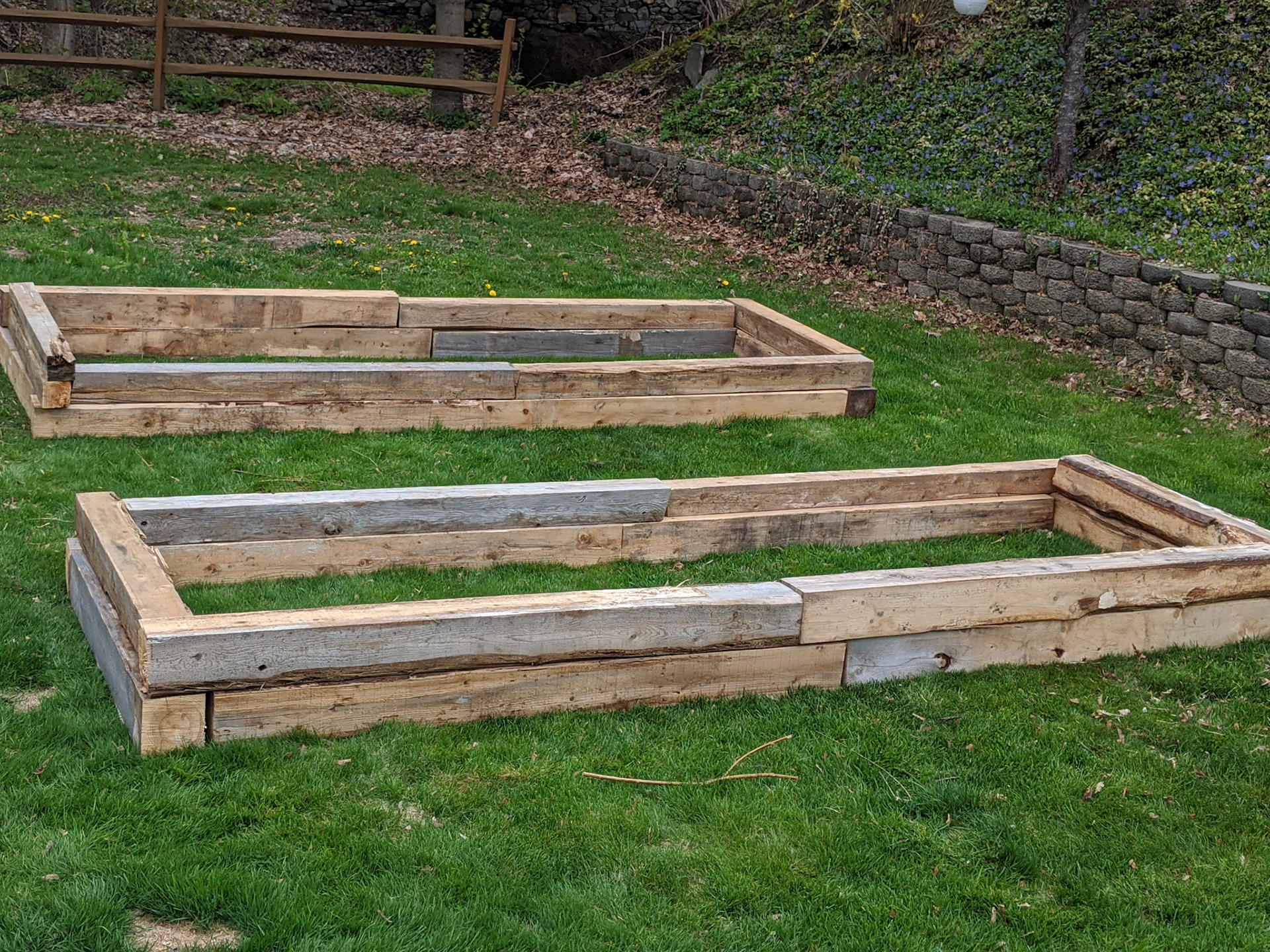
Photo by Courtney Williamson
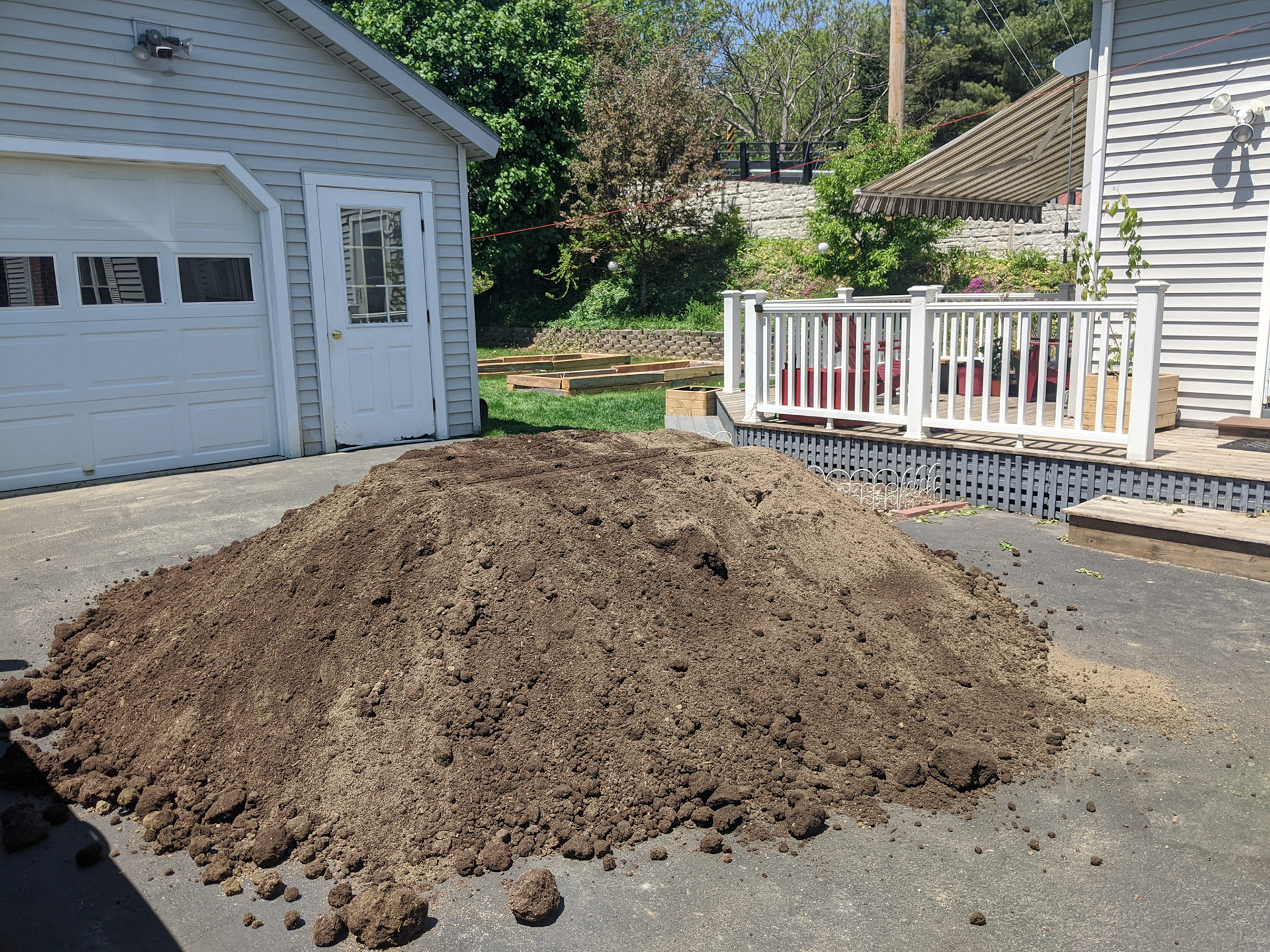
Photo by Courtney Williamson
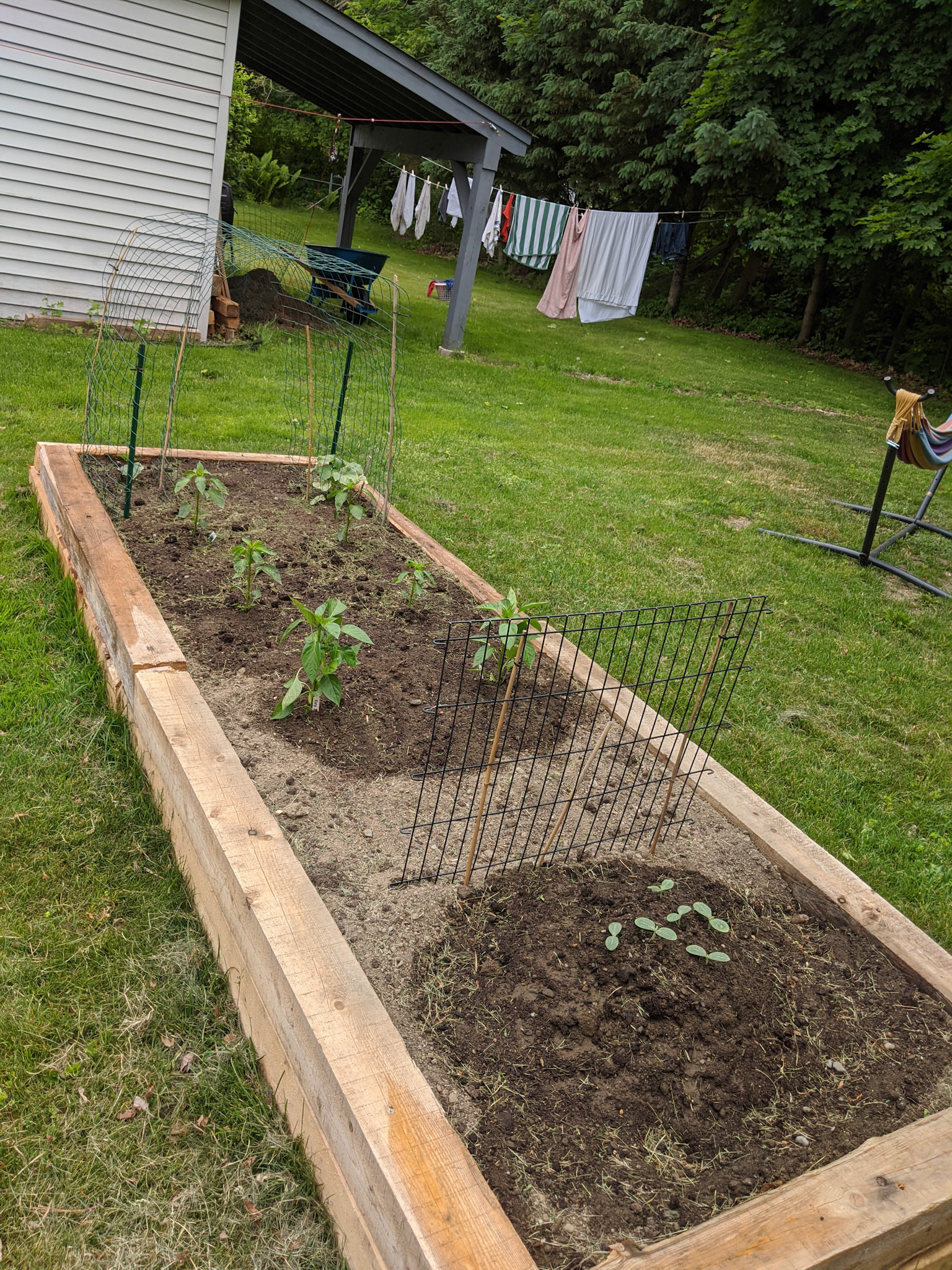
Photo by Courtney Williamson
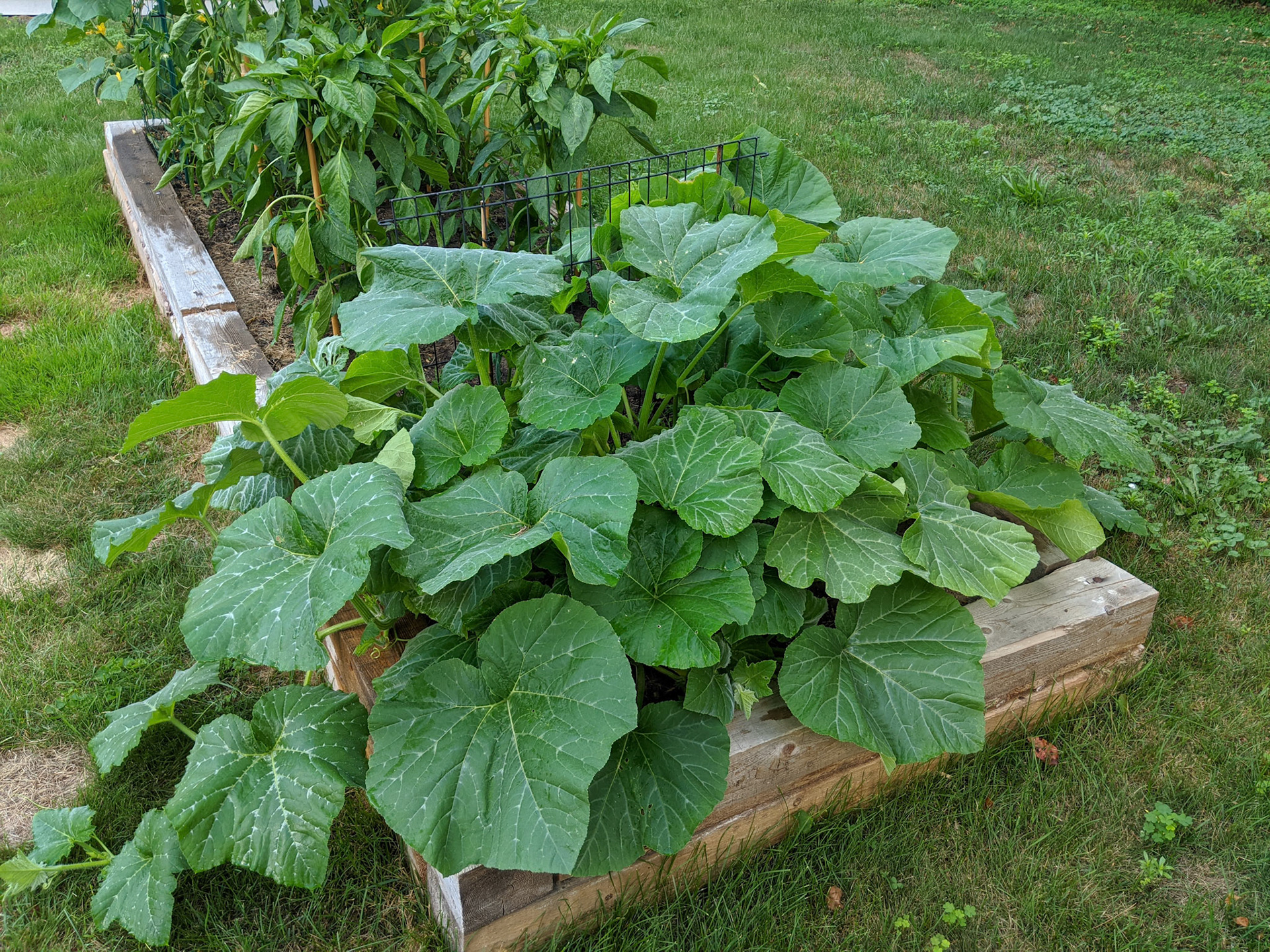
Photo by Courtney Williamson
By July, with the exception of the Hubbard squash, which fell victim to some very gross squash bugs, the garden was going gangbusters. For a minute, I felt like God in His Eden. I had forgotten, if I ever knew it, the particular magic of watching a fruit form out of a flower; how it’s a goofy mix of life force and practical joke, the way bulbous shapes—cartoonishly colored—unashamedly extrude from delicate petals and stamens, seemingly overnight.
Yet, as the days in the garden passed, seeds of anxiety started to sprout. At first, it was a vague feeling I couldn’t shake—something to do with needing to stall for time. I was excited to harvest the first vegetables, but... not yet. Something was missing, but I couldn’t put my finger on what.
Around mid-July, after an ordinary text exchange with my daughter about this and that, I realized: there was no fixed date for the next time she would visit my house. Note that it wasn’t that she had a plan not to come. Her arrival at my home wasn’t anything we had discussed or not discussed. It wasn’t a topic because it wasn’t a thing. She didn’t have any plan at all because why would she? My daughter is a grown human who lives in another state. She’d spent some time sheltering in place with me when the first shock of the pandemic hit, sure, but now she was working from home from her own home. As one does, these days, if one can.
It was a simple fact, but it detonated in my brain. For a couple of days, I was stunned—emotionally concussed. I felt confused and unmoored, almost grief stricken. I couldn’t figure out what was wrong. Was it an anniversary of a past loss? Was it brain chemistry? I kept starting to cry. I kept wanting to call someone to tell them that something had happened, but I wasn’t sure what had happened.
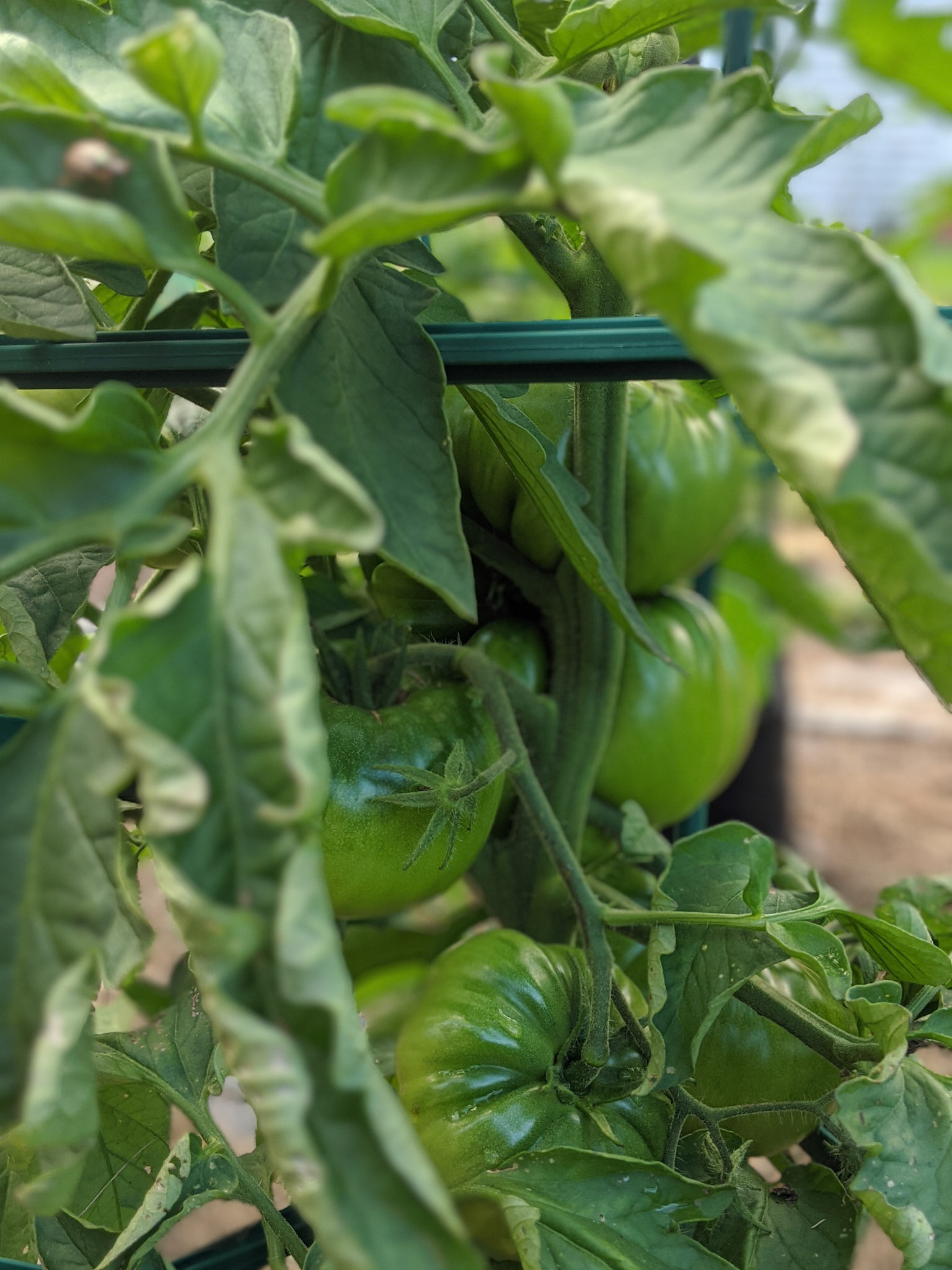
Photo by Courtney Williamson
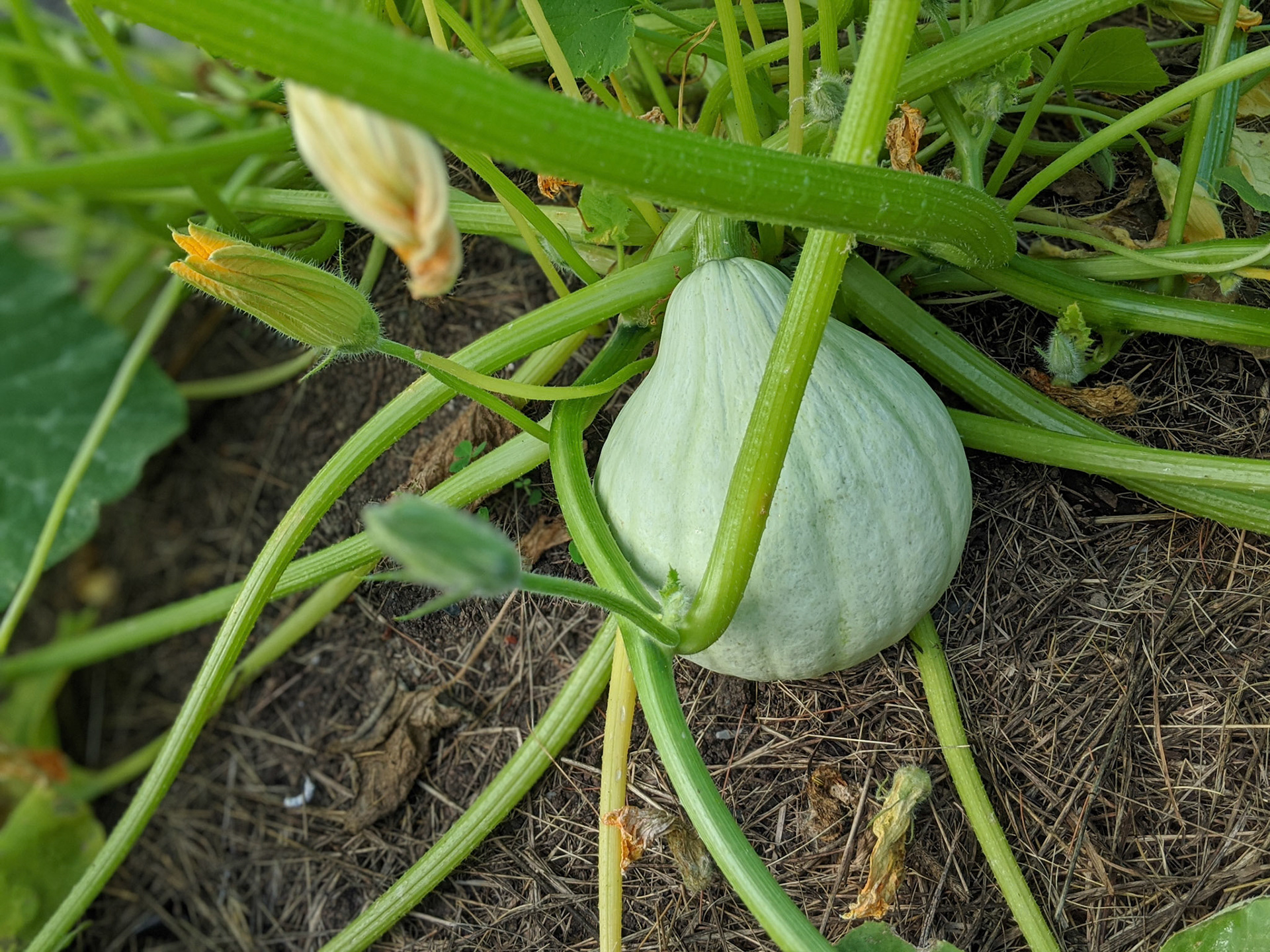
Photo by Courtney Williamson
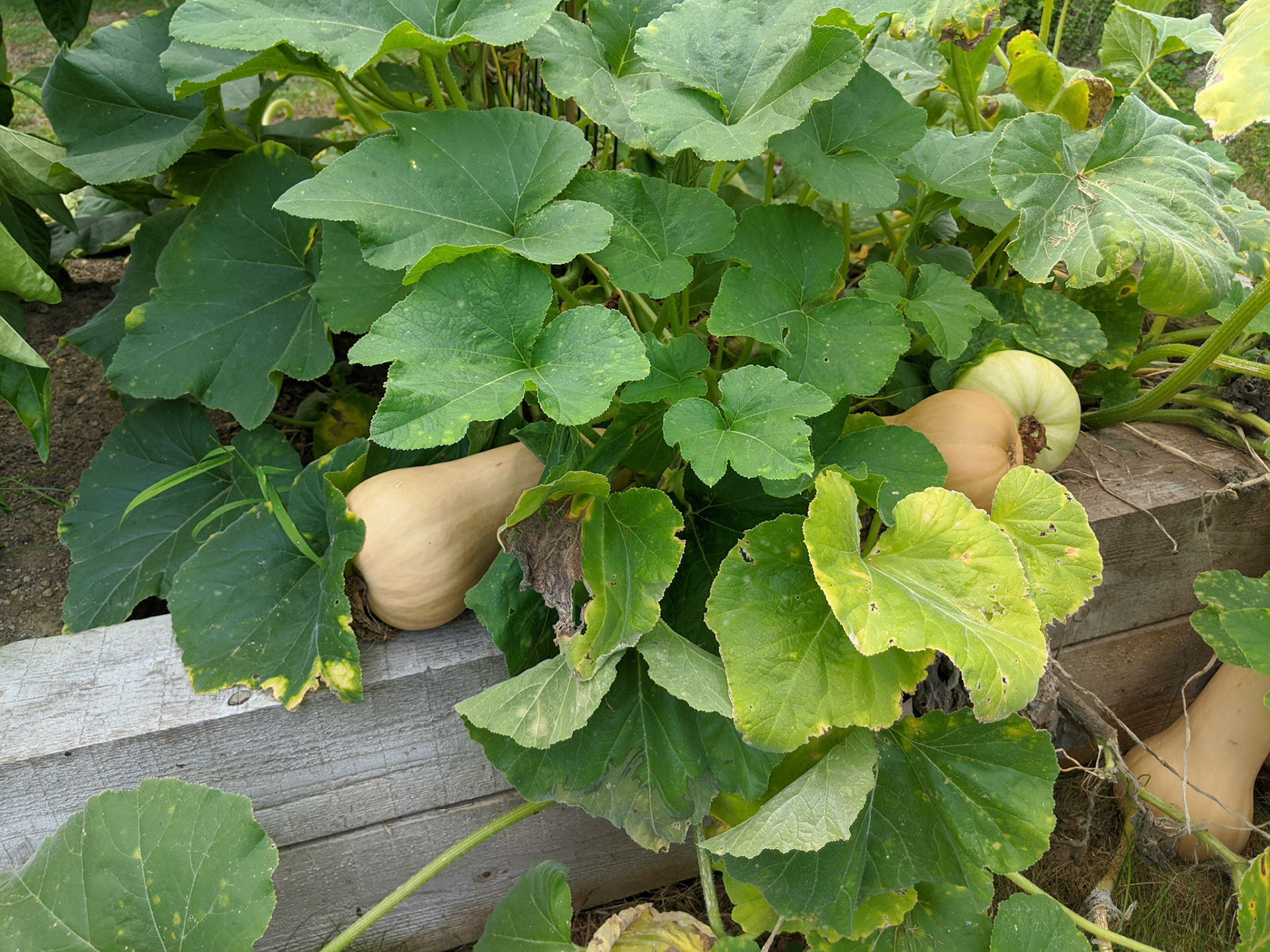
Photo by Courtney Williamson
It was another couple of days when, out in the cucumber patch, it hit me:
A well-rooted and only partially dormant part of me had planted a garden to feed a child whom it believed lived at home. And, when faced with the fact that the child whom it believed would soon be eating home-grown cucumbers and red peppers did not, in fact, live at home, this part of me was devastated. For two and a half months, it (she? they? I don’t know this part’s pronouns) had quietly carried on believing that the child was really just right around the corner, probably just on an errand, or about to arrive, or quietly upstairs, and that she would shortly need to be fed. But when the small stash of plausible stories about her whereabouts ran out, the fuel for the fantasy did, too.
It’s one thing to miss the ones you love, sweetly and happily, and it is quite another to semi-consciously endow a vegetable garden with the power to evoke an existential loss. I had to say to myself, out loud, do you know that you are no longer responsible for feeding either of your children—and haven’t been for a long time—multiple years in fact? Even then, that part of me answered with something more like are you sure? than well, of course.
In her great book on motherhood and grief, The Year of Magical Thinking, Joan Didion writes, “I am a writer. Imagining what someone would say or do comes to me as naturally as breathing.” It’s a writer’s superpower, this ability to make whole scenes and conversations up on demand—to evoke the company of another human being so thoroughly it feels real.
It’s also something that is reinforced by the unique provenance of the single parent.
In the years when my children were small, their father was often on deployment as a U.S. Army service member. Our son was just four weeks old when his father started a series of trainings that would keep him away for several months. Four years later, he started a one-year unaccompanied tour in South Korea just six weeks after our daughter was born.
That was a formative year. Taking care of an infant and a four-year-old on my own was hard work—just the physical labor of nursing an infant while chasing a toddler was formidable—but it was joyful work, too. Small children grow so quickly that you reap the fruits of your labor in weekly if not daily intervals. On my own as a parent, I had the luxury of ordering my life exactly as I needed to—including using my imagination to create the companionship I needed. Inside my head I had a running conversation with my husband that worked pretty well as a complement to our once-weekly half hour phone calls. Inside my head, I also had a ‘parenting community’—a whole fictional landscape of people who had raised children in odd circumstances: Aunt Cora and Great Uncle Gum in Noel Streatfield’s Dancing Shoes and Ballet Shoes, respectively. Professor Kirke in The Chronicles of Narnia. Topaz Mortmain, nudist, model, and stepmother in I Capture the Castle. Unusual circumstances call for unusual role models.
Inside my head, my life and my kids were just fine. And because I believed this to be true, it was. It was the year I discovered fresh basil and sun-dried tomatoes, and the good nutty taste of mint and feta and couscous combined; the year I learned to bake bread, the year I first made jam. In the morning all three of us rose with the sunrise that came relentlessly through our east-facing windows. At night I’d nurse my daughter while my son ate a bowl of whatever fruit we had picked that day topped with creamy yogurt from the farmstand next door.
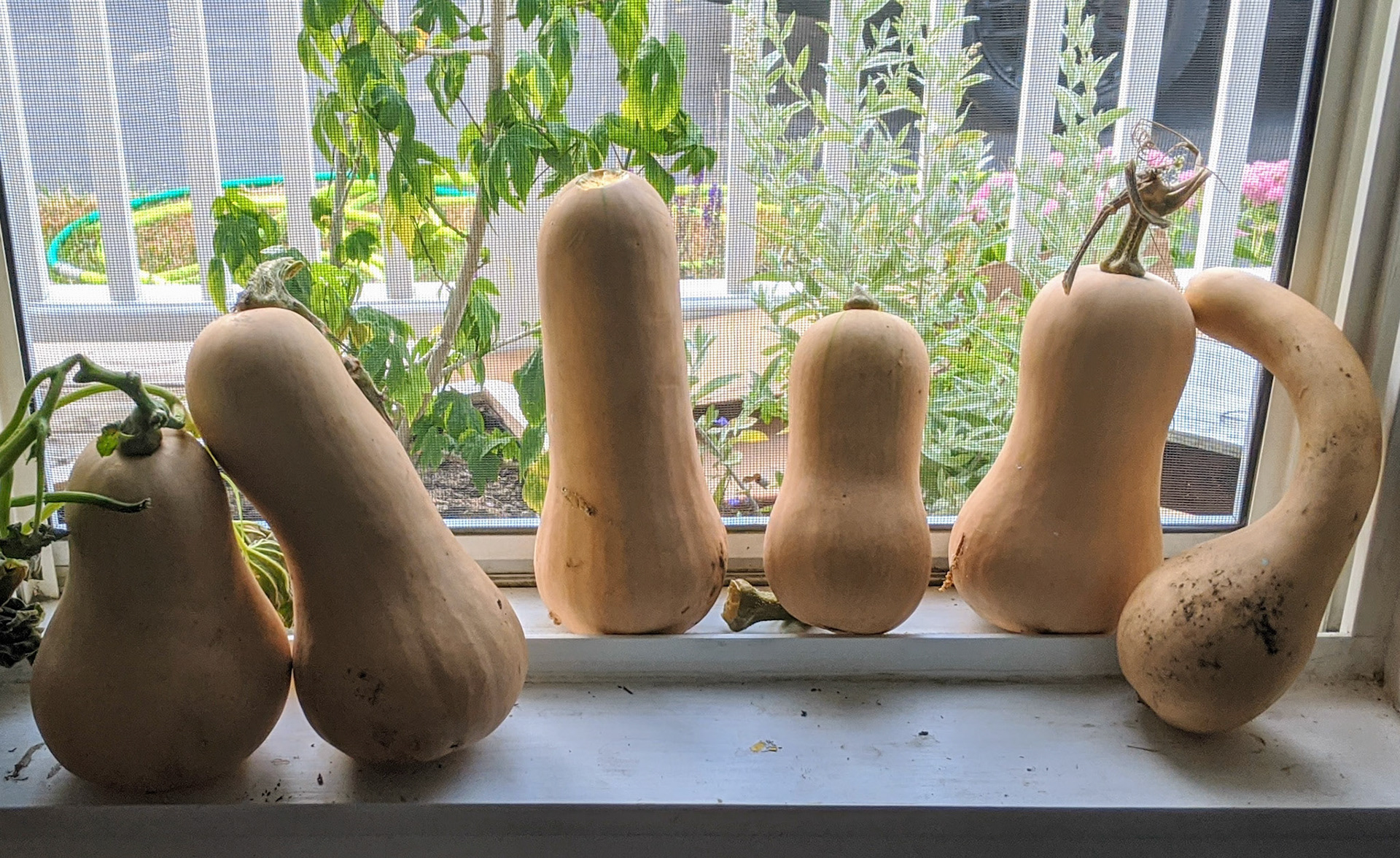
Photo by Courtney Williamson
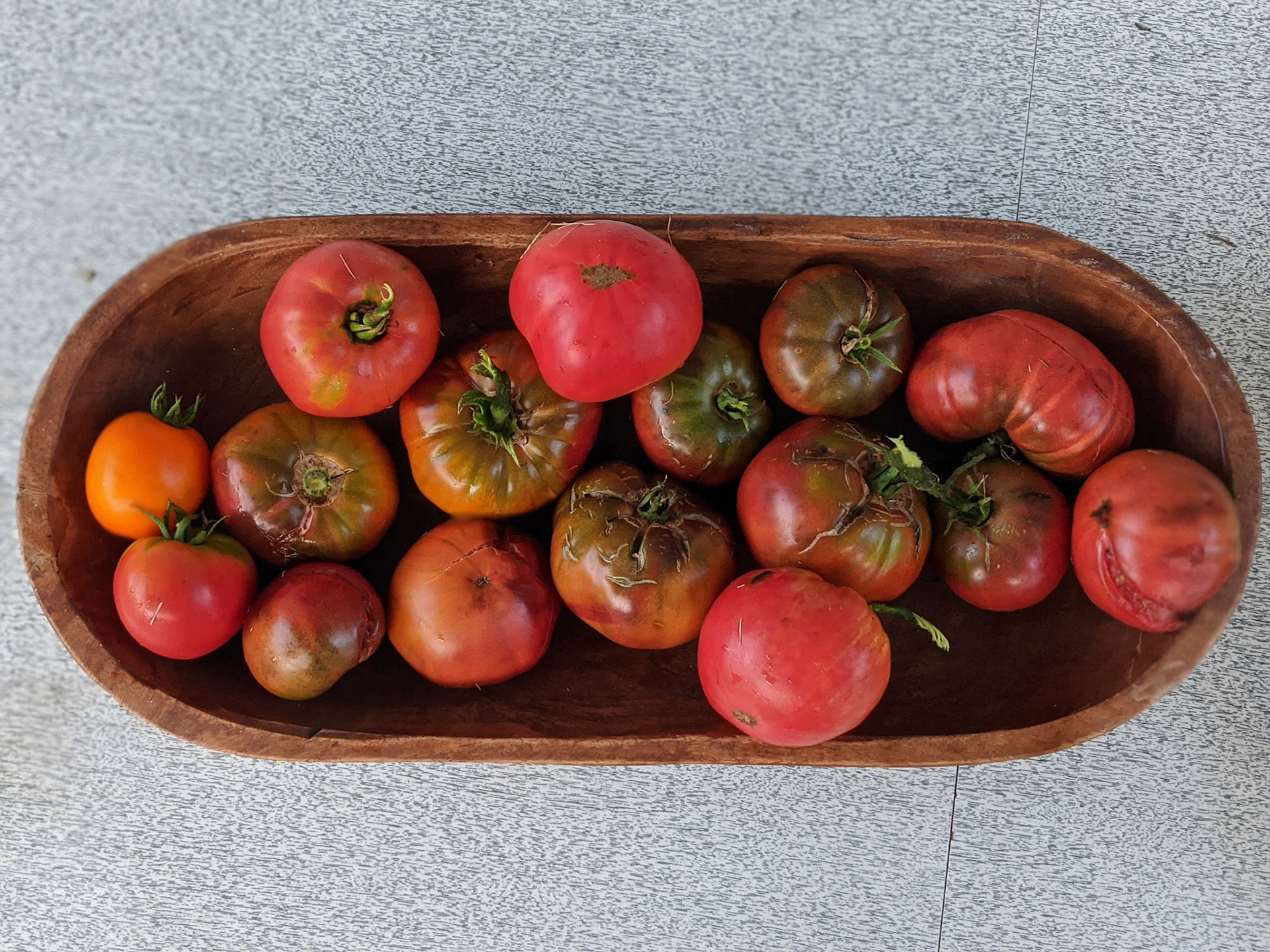
Photo by Courtney Williamson
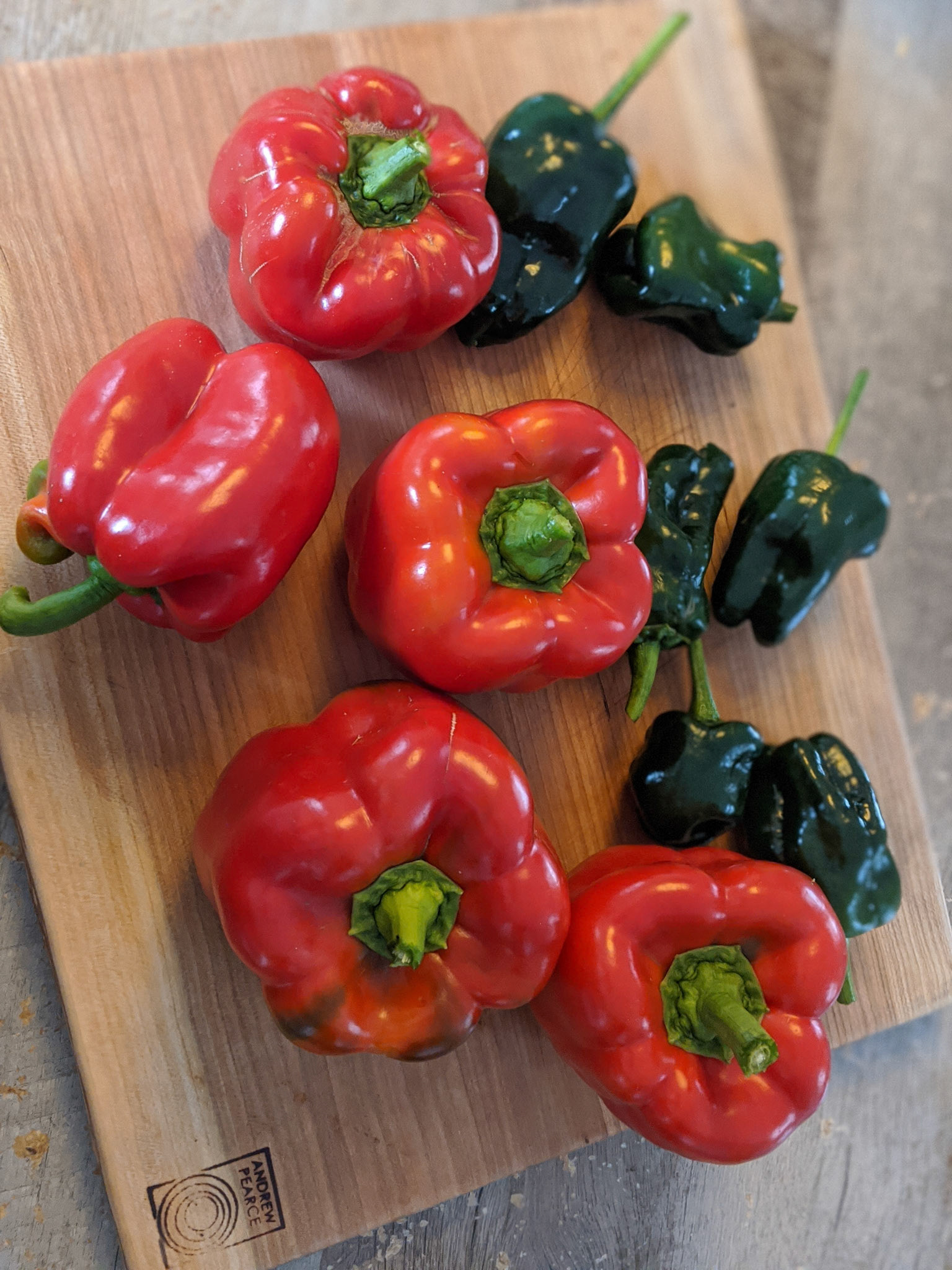
Photo by Courtney Williamson
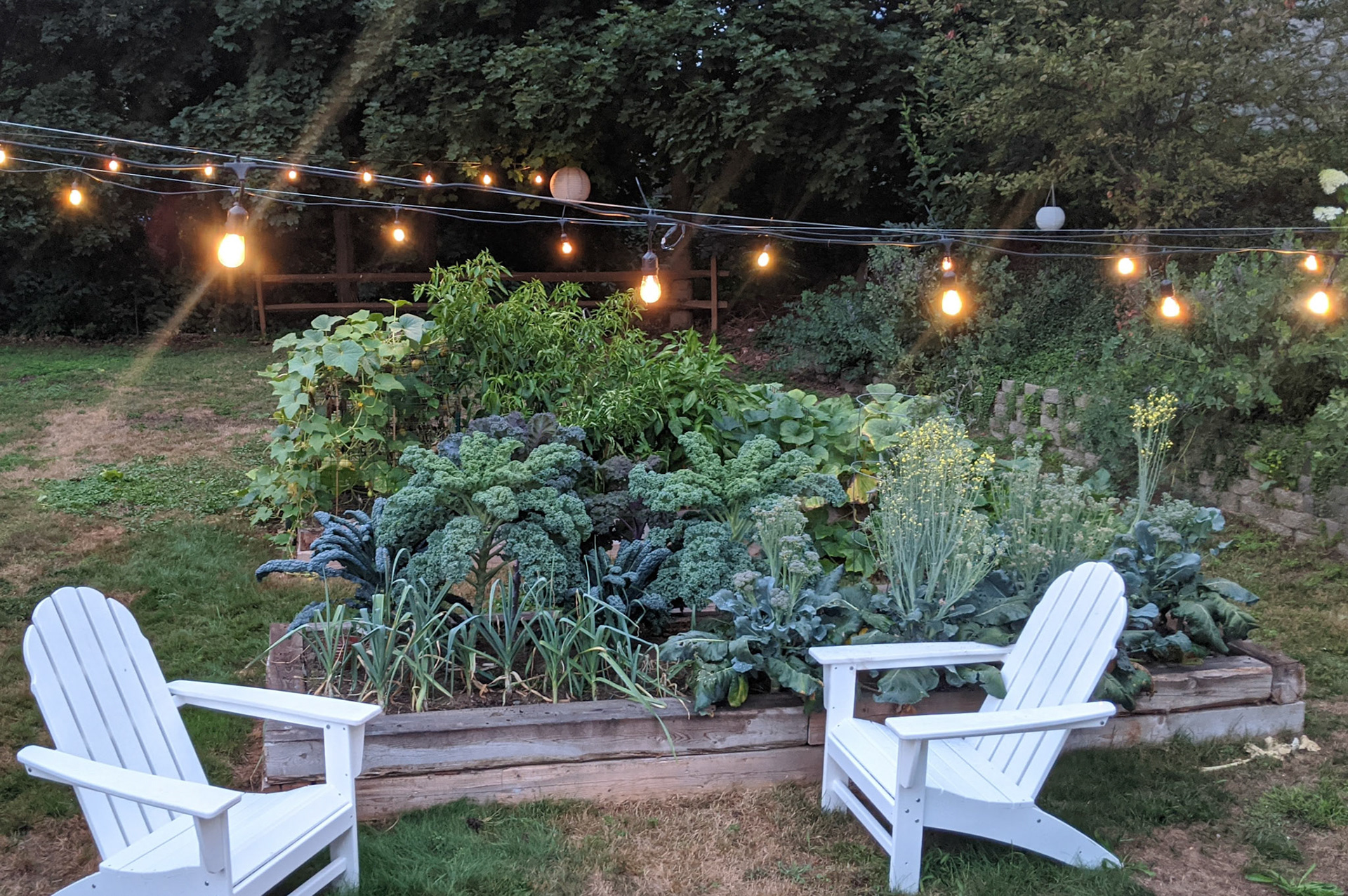
Photo by Courtney Williamson
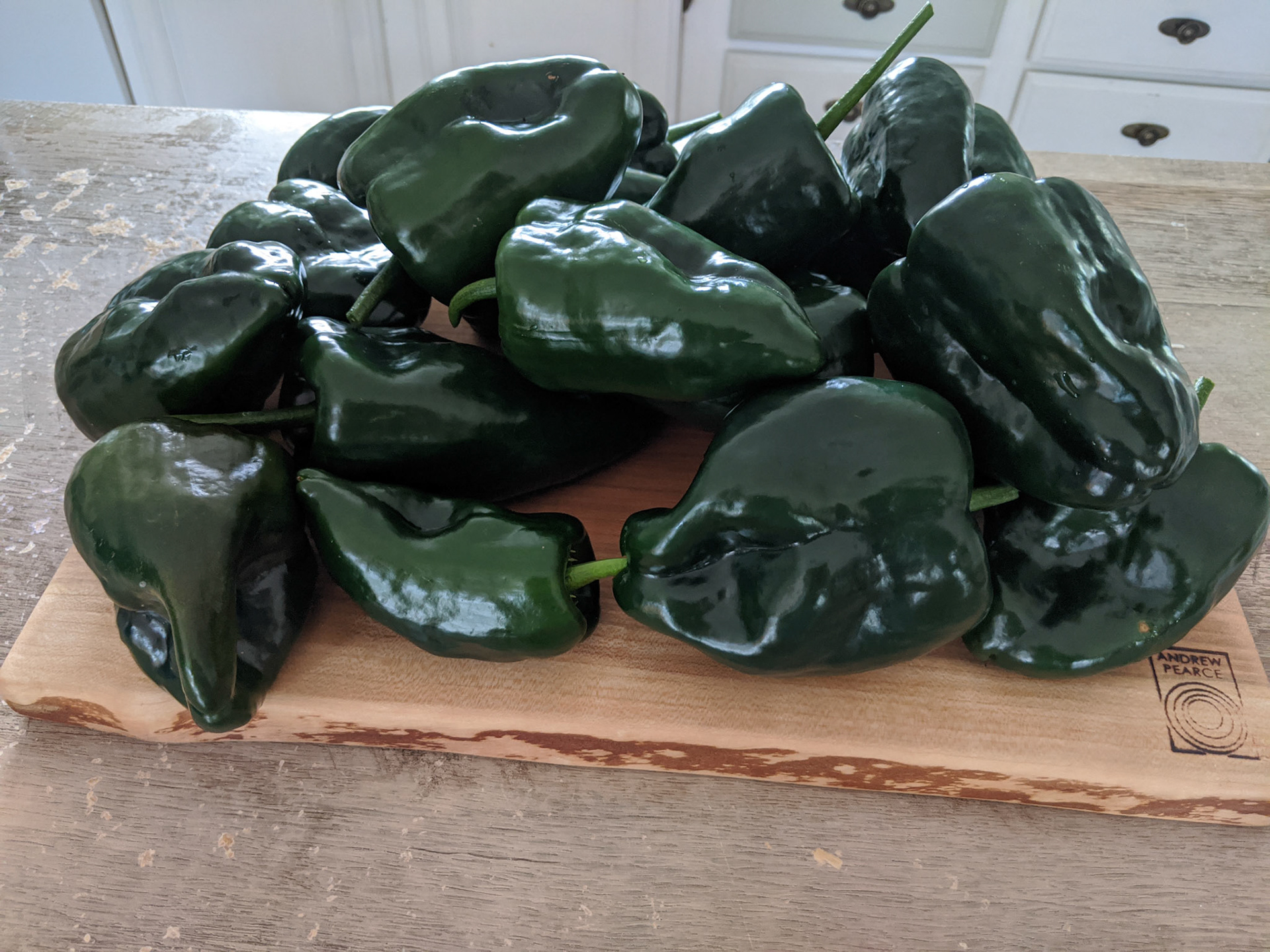
Photo by Courtney Williamson
Back then, the power of my imagination had transformed what could have been a difficult and lonely year into a transformative one. Now, faced with the need to reimagine my role as a parent—and, maybe also my role as a human being—I picked up and reread one of my favorite books: Edward Abbey’s Desert Solitaire. It is one of my touchstone books—one that I’ve carried with me everywhere I’ve lived because it speaks to parts of my soul I don’t want to lose. His essays about his time as a lone park ranger at the Arches National Monument have appealed to me since I was a teenager, in part because of how wonderfully he writes about solitude. Here, he describes turning off the generator for the night:
I hear its last vibrations die like ripples on a pool somewhere far out on the tranquil sea of desert, somewhere beyond Delicate Arch, beyond the Yellow Cat badlands, beyond the shadow line.
I wait. Now the night flows back, the might stillness embraces and includes me; I can see the stars again and the world of starlight. I am twenty miles or more from the nearest fellow human, but instead of loneliness I feel loveliness. Loveliness and a quiet exultation.
As I reread the book, I realized how much I had enjoyed the quiet of sheltering in place. And, it helped me see how the cessation of social expectations had created some new, interesting spiritual and psychological space alongside the physical distancing.
The well-rooted part of me that grieved the lost child will probably always miss the time when I tended children instead of a garden, but it’s not the only part of me that can tell a story. The truth is, these days, all I have to do for companionship is step outside into the new vegetable garden, which turns out to have been fertile ground for nurturing new friendships.
I am realizing that for maybe the first time in my life, I have the luxury of solitude as a choice. I’m no longer stuck in the liminal space between single parent and single person, nor even in the false binary of partnered or unpartnered. I’m connected to others and also wholly to myself. I have responsibilities, and also freedom.
I realize that for many the pandemic has been a time of reduced freedom and forced restrictions, but for me, it’s been a season of unburdening. I know now that I don’t need to conjure a child to feed to give myself a purpose in life, and I can say no to good company, as I did last night, because it’s no longer scarce. I know now what it’s like to come home alone and lie in the hammock in the twilight in my garden because I want to. I can sink into a new kind of solitude at will and know that I will be met by “loveliness and a quiet exultation.”
October 2020
Courtney Cook is a writer based in Wilder, VT. She has degrees from Dartmouth College and the University of Wollongong, Australia, taught English literature for 10 years, and now works as a technical writer and marketing manager. You can read her writing at the Los Angeles Review of Books and in her newsletter, Survival by Book.
